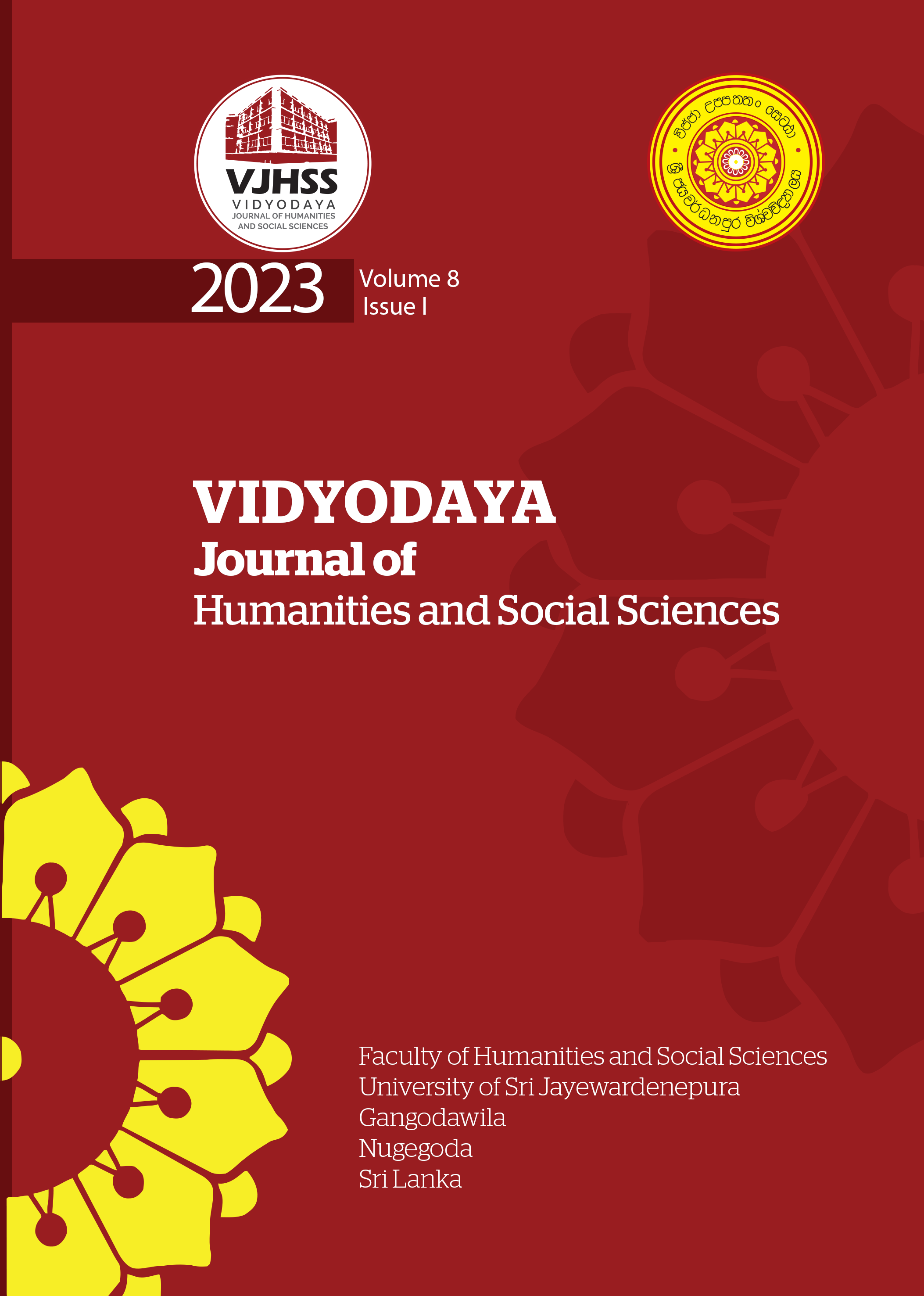The Sphoṭa and Perception of the Sentential Meaning: A Semantic Investigation based on the Sphoṭa Theory
Abstract
The transmission of meaning is the main purpose of the language or the unique communication tool. Each single linguistic sign contains a conventional meaning. Perception of meaning is achieved by listening to any utterance or sentence uttered by the speaker in speech and by reading a sentence in reading. The theory of Sphoṭa that was enhanced by Bhartruhari in Vākyapadīya can be identified as the ideal oriental linguistic theory which elaborates the process of perceiving the meaning of a sentence. In this process, the whole sentence is heard and considered rather than its individual elements. The main purpose of this paper which is based on the research problem of “how the meaning of a sentence is perceived” is to explore the semantical process of the perception of sentencial meaning, with reference to the theoretical interpretation of Sphoṭa. In order to investigate the research problem, data analysis of literary sources was carried out following the qualitative research methodology. Through the critical analysis of facts, it was possible to conclude that the Sphoṭa theory reflected in the ancient oriental semantic analysis is ideal and ubiquitous; in terms of that, the meaning of a sentence is perceived not by the individual elements but by listening to the whole sentence, and the Sphoṭa is the concluded feeling or the entire sense which is generated in mind after hearing the entire sentence or utterance.



